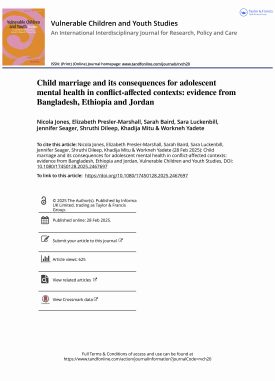The government of Jordan, after detecting the first covid-19 cases in early March, acted decisively to stop the spread of the virus, implementing a mandatory curfew and one of the most stringent anti-coronavirus regimes in the world. The introduction of Defence Order No. 2 started a nationwide lockdown which confined all residents to their homes. After an initial five days, the prevention measures were loosened slightly allowing people to go on foot to get essentials from local supermarkets and pharmacies in their neighbourhoods, but most businesses and governmental institutions remained closed. Moreover, the lives of many young people have been interrupted by school closures expected to last until at least mid-June, and possibly longer. As of 3 May, the confirmed number of covid-19 cases is still relatively low (461 confirmed, 9 deaths), especially when compared to some of the neighbouring countries, and the government is considering slowly lifting some of the restrictions.
This policy brief is part of a cross-country series designed to share emerging findings in real time from qualitative interviews with adolescents in the context of covid-19. The young people involved are part of the Gender and Adolescence: Global Evidence (GAGE) programme’s longitudinal research in the Middle East, East Africa and South Asia. To inform the pandemic response and contribute to efforts aimed at ensuring that gender- and age-specific experiences are taken into account alongside other social characteristics (including disability, refugee status, marital status), this brief draws on data from 100 phone conversations with vulnerable Syrian, Palestinian and Jordanian adolescents aged 11–19 years held in April 2020.
Suggested citation
Małachowska, A., Al Abbadi, T., Al Amaireh, W., Banioweda, K., Al Heiwidi, S. and Jones, N. (2020) ‘Listening to young people’s voices under covid-19. Exploring the impacts of covid-19 on adolescents in Jordan’s refugee camps and host communities.’ Policy brief. London: Gender and Adolescence: Global Evidence. (https://www.gage.odi.org/publication/exploring-the-impacts-of-covid-19-on-adolescents-in-jordans-refugee-camps-and-host-communities/)


